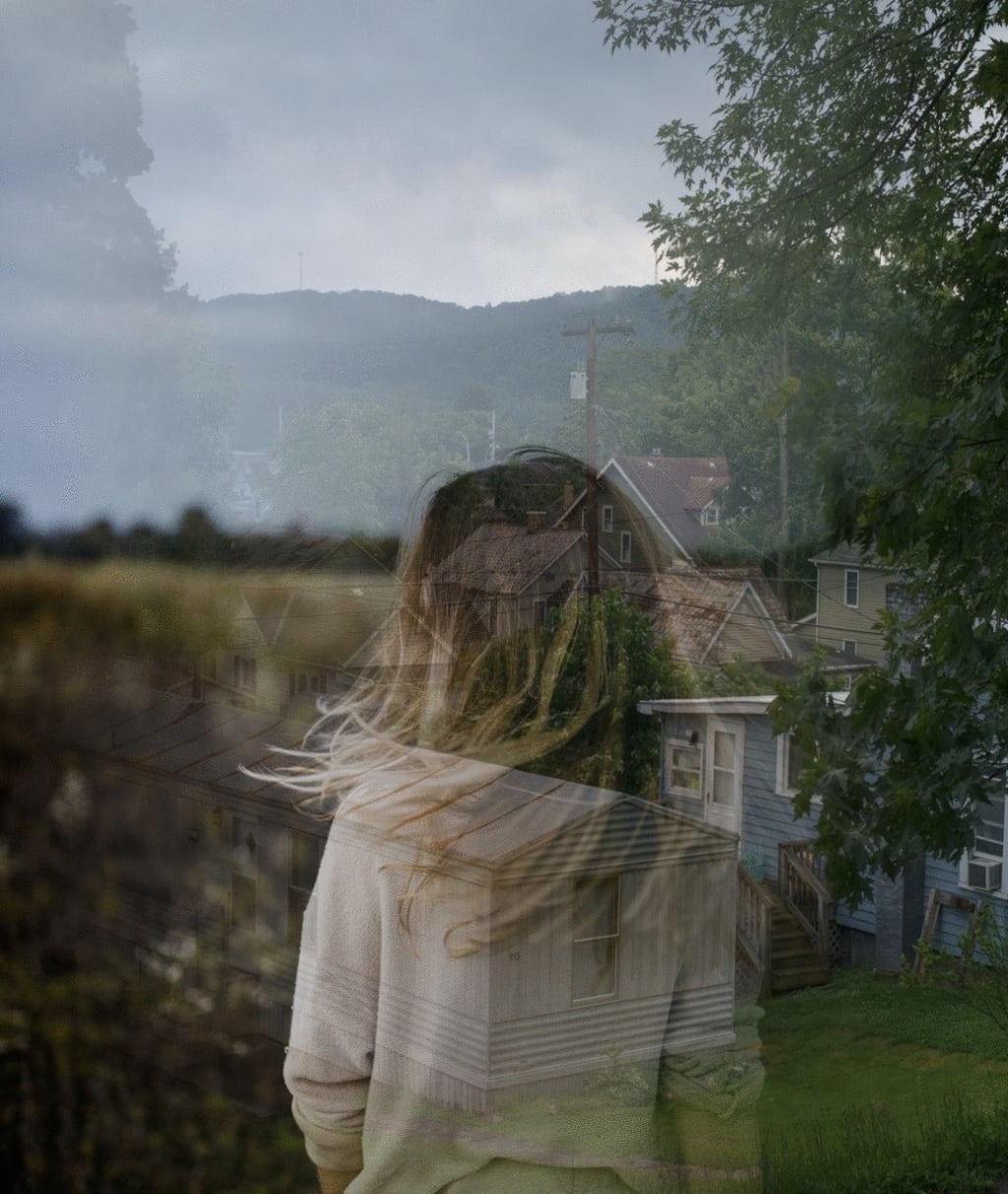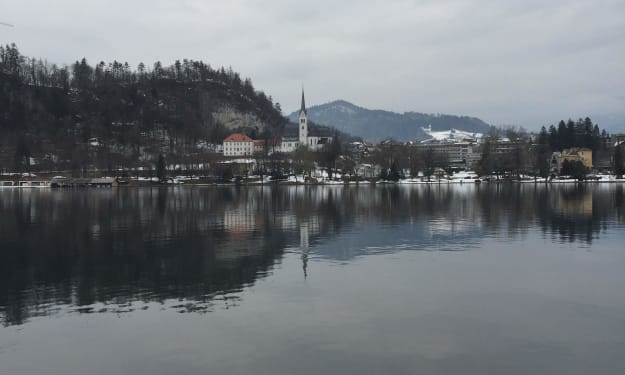Where we plant the milkweed seeds its poison also grows
A tale of rural Appalachia

I’ve been keeping other people’s secrets all my life. I don’t know why people tell me things, but they do. Maybe ‘cause I’m good at listening. I’m a quiet listener. Just like how I’m quiet now, walking through the forest up in this little corner of Appalachia that I was born in— that I’m still stuck in.
When I was six I saw my Momma sitting on our raggedy couch. One of her friends was there, one of the one’s Daddy didn’t like very much. Momma had a spoon in her hand, and a lighter— heating up some medicine she said.
"Are you sick Momma?" I asked.
"Yeah Opal," she said. "I’m sick. Don’t tell Daddy, we don’t want him to worry."
"I won’t tell," I said, and I didn’t.
Two years later Momma left with another, different friend that Daddy also didn’t like. She never came back. I still didn’t tell.
When I was eleven, my big sister Missy and I were sitting on the old rusted swings in the yard. Daddy had hauled them from some junkyard somewhere, before he hurt his back down in the coal mines. Now he spent most of his time inside sleeping, or smoking out on the porch— living off a monthly supply of white pills and a $600 disability check.
Missy was whispering to me, even though Daddy was asleep— dead to the world. He wouldn’t have heard us even if we had been hollering. Missy and Daddy fought a lot, especially since my older brother Jesco moved out. Missy wasn’t real good at listening to Daddy— always going out with older boys and skipping school. She was good at taking care of me though.
"I’m gonna have a baby Opal," she told me, big fat tears running down her cheeks. "You gotta promise not to tell Daddy, he’ll be awful mad."
I remember wondering how Missy was gonna take care of me and the baby too. A few weeks later, I found out the answer— she wasn’t. Missy left just like Momma, and I kept her secret. Maybe, I thought, if I kept Momma and Missy’s secrets well enough, that one day they’d come back for me.
When I was fifteen my Daddy left me too, but in a different way. He’d been living like he was already dead for a while, but the cancer made it official. That’s how I ended up living with my brother, Jesco, who has more than his fair share of secrets to keep.
It’s not yet sunset, and I’ve got at least another few minutes before I have to get back for my shift at the bar that Jesco owns. He made me drop out of school when I turned sixteen. Ain’t no use in having me around if I couldn’t earn my keep, he had said. Momma had managed to get sober for carrying me, something she hadn’t been able to do when she was pregnant with my brother, and deep down I think he always hated me for it.
The forest is always encroaching on town, closer and closer over the years— an angry wilderness reclaiming its own, rebuking us for what we’ve done to it. My brother’s bar is right on the very edge. It’s a glowing beacon to lowlifes and criminal types, coming up from a curve in the road and a gap in the trees.
I wander into my personal hide-out, an old wooden lean-to I found years ago. I go inside to sit on the dirt floor, calm my mind a little before I have to go to the loud, too-bright bar. Something catches my eyes as I enter— a rock in the corner of the building where there wasn’t one before.
I squat down and push the rock to the side. The dirt has been disturbed underneath it. I dig into it a little, tugging on the edge of something plastic poking up. A ziplock bag comes up in my hand— inside it a small, black notebook. I open it up. There’s a scribble of notes inside that I can barely read. I only make out a few things— Mexican connection...cocaine...distribution. I have no idea what it means, and before I have any time to read further I see the sun is getting low in the sky. Time to head back. I shove the notebook in the pocket of my jacket.
In the movies, the end of the world and society always happens with a bang. A big earthquake, or bomb, or flood. Out here it’s like the apocalypse came and went but ain’t nobody noticed it yet. It was a slow, gradual thing, the decay. That’s why we act like this is the way it's always been, because except for a few old-timers, it’s all we know.
My great-granddaddy used to have lots of good farmland up here. Then one day some suit-wearing land agents came up to the mountains and gave him a hundred bucks, ten brand new rifles, and nine big fat hogs. So my great-granddaddy gave them the land, which later on made billions of dollars from coal, years after all the hogs had long since been made into bacon. We still have one of the rifles, my daddy kept it above the door and never shot it. When he died my brother put it in a box somewhere.
In the 60’s the government men and journalists came in. They announced that war on poverty had been declared, and apparently our little bit of country was the main battleground. They took photos of my ancestors sitting on the fronts of their porches of the houses that everyone else in the country called shacks. And then they all said look at those poor hillbillies and rednecks up there. We were something to be simultaneously pitied and sneered at.
There’s nothing my brother hates more than pity, so he’s taken to sneering back. He wears his distaste for outsiders on his sleeve. That’s why when I finally duck into the bar, after lingering in the quiet space between the trees, I’m surprised to see a stranger leaning lazily on the counter next to my brother. Leather jacket, scraggly beginnings of a beard. He’s not old, maybe the age of my brother, but he has hollow eyes and a grey complexion. Whatever kind of life he lives it ain’t an easy one.
My brother doesn’t look at me as I step behind the counter, hanging my jacket up and wrapping the black strings of the apron behind my waist. “Running late again, Opal?
I don’t respond. It’s six fifty-three, and my shift doesn’t start till seven, but nothing is ever good enough for Jesco.
“This is my friend, Ace,” Jesco waves a scarred hand, the result of a childhood firecracker accident, at the new man. “He’s up here from Alabama.”
Ace nods in greeting. He looks straight at me, a lingering, searching gaze that makes me turn away and pretend to wipe down the already clean counter. The patrons of Jesco’s bar don’t usually look at me at all, and if they do it isn’t in the eyes.
“Me n’ him gotta go talk shop.” Jesco says, slamming an empty beer glass down on the counter. “See you later sis.”
I flinch. Every time Jesco calls me sis it’s like a reminder that he only keeps me out of fraternal obligation.
I work the rest of the night not thinking about the new man. I don’t think about him again, until I stagger into the trailer on the back of the property after my shift ends at midnight. Ace and Jesco are unconscious on the couch in what passes for a living room. I should have expected it. It’s rare for any of Jesco’s “business meetings” to not involve drugs. I kick an empty beer can as I fumble for the light switch.
When the light comes back on I gasp. Spread out on the table are huge stacks of money, pouring out of a brown paper bag that has been tipped over on it’s side. Ace stirs a little, looking around blurrily. As I turn to go to my room, before either of them wake entirely, something falls out of my pocket. The notebook.
Ace grabs for it before I can, snatching it up and sliding it in his own jacket pocket. His eyes are wild, like a caged animal. I take a step back. Ace leans forward, presses one finger to his chapped lips slowly. He looks over at me brother, making sure he’s still asleep.
“You and I need to talk.” Ace stands up. He strikes out quick, like a cottonmouth, a hand wrapping around my wrist. Then he tugs me sharply out the door, into the patch of dirt that’s our backyard.
I think about balling up my fist and walling on him. Or opening up my mouth and hollering like a wildcat. I don’t though, because as he lets go of me I see the flash of a pistol tucked into his waistband under his jacket— a Glock. Standard police issue. I start to put two and two together. The notebook with notes about Mexican cartel connections. The big pile of money.
“You’re undercover police aren’t ya?” I ask softly.
“Well you’re too smart for your own good, aren’t ya?” Probably-not-actually-named-Ace sighs back, heavy.
Is he gonna kill me? Cops, even undercover ones, aren’t supposed to kill people. But cops do things they aren’t supposed to all the time, especially out here.
“Here—” Ace starts ruffling around in his jacket. Then he pulls out something. “Is this enough to get you to not say anything?”
He hands over cash. Hundred dollar bills wrapped in $10,000 sleeves, $20,000 total. I blink. I’ve never held this much money in my life.
“It should be enough to get you out of here, if you want.” Ace says, even quieter.
It is, I think. It’s enough to get me somewhere else. Somewhere else where I can get a job, and save up, and maybe one day go to college.
“If I get out of here, and don’t say anything, is my brother going to go to jail?”
Ace pulls out a cigarette, puts it between his lips, and lets it hang there. “Probably.” At least he’s honest.
“Good.” I say, almost surprising even myself. “I won’t say anything.” It’s still a risk for Ace though. He doesn’t know that he can trust me. It’s not smart, I think, to stay. By the way he’s staring off into space though, I don’t think he really cares.
“Why are you doing this?”
“It’s my job.”
“That’s not what I mean.”
Ace sighs again, digging in his pants pocket for a lighter. “My brother died. Opioid overdose. Football injury and then he got addicted.”
He lights the cigarette and blows the suffocating cloud of smoke towards the dark night sky. Some of it makes it’s way over to me. I don’t cough. Working in the bar has made my lungs accustomed to the sulphurous spiral escaping his lips.
“You know those’ll kill ya too,” I say. That’s how my daddy died, black tar lungs from years of cigarettes and coal dust.
“I’m counting on it.” Ace smiles and it's a grim and terrible thing. “But it’ll take a while.”
I turn and head back to my room to pack a bag. If I start walking now I can make it to the bus stop before dawn. I tap my pocket, once, to confirm the money is still there. It is. All my life I’ve been keeping other people’s secrets. Now, all I’ll have to keep is my own.





Comments
There are no comments for this story
Be the first to respond and start the conversation.